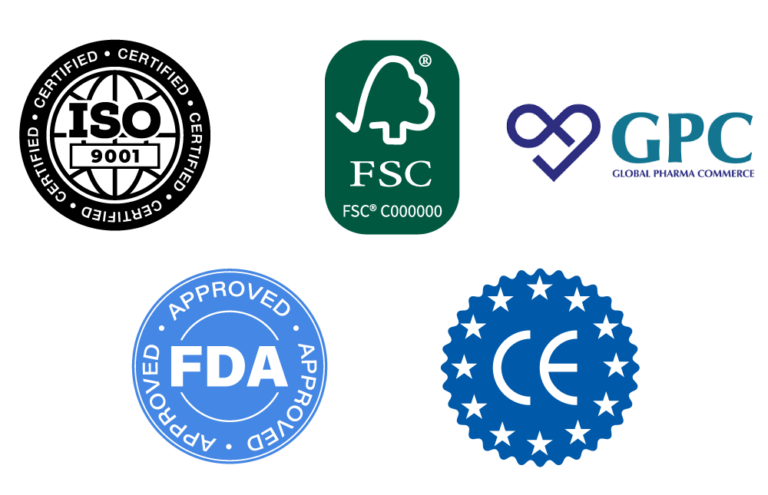Over the years, surgical staplers evolved thanks to scientific and technological progress. These products now give surgeons options for different kinds of features of suturing tissues in a linear, circular, curved, or radial way. They are generally used during surgical procedures that must be performed quickly, or in areas of the body that are difficult to stitch. One of the examples is a stapler used for gastric sleeve surgery where it’s used to create a connection of surgical areas. With sleeve gastrectomy operation around 70% of your stomach is stapled off and removed.
What is a Covidien stapler?
Covidien staple Tri-Staple™ Medtronic technology is a specifically designed stapler used for gastric sleeve to work with the natural properties of tissue before, during, and after stapling. As a result of that special design, it has great strength and leak resistance. Reloadable gastric sleeve staplers consist of three rows of varied-height staples. It usually takes six firings of the stapling device to complete a gastric sleeve, three rows of titanium staples on each side, so you get around 600 of those tiny staples during your sleeve gastrectomy procedure.
Why does stapler material matter?
Medtronic’s Covidien high-performance staplers are produced from medical-grade titanium which makes them safe to use. According to the International Titanium Association, it’s the best surgical staple material known since it doesn’t rust. What’s more, there is no allergic reaction to titanium, which is also less likely to cause inflammation or infection. Keep in mind though that all surgical staples contain some small percentage of nickel, so you should let your doctor know if you have an allergy to this material. Titanium is the first choice when it comes to internal surgeries because of its strength, lightness, and flexibility.
What would happen if the material of the staplers is not good enough?
First, the surgical stapler material’s poor quality could cause some complications such as leaking and bleeding from the staple lines. Products made from materials different than titanium may also cause allergies. Surgical staples might be more problematic when it comes to embedment in the body. Overall, all this can lead to a slower post-op healing process of the tissues.
Surgical staples can also be made from nickel, chromium, plastic, or iron. However, until now none of the other staple materials has come even close to being as reliable as titanium. You should be cautious because some clinics may use made-in-China or other questionable sources of surgical staples of many different gastric sleeve stapler brands. It happens due to their attractive prices and can put your health, and even life, at high risk. That’s why it’s so important to choose the best quality gastric sleeve surgical staplers.
Why are Covidien staplers the best?
Medtronic’s Covidien stapler used for gastric sleeve provides the most developed technology, which allows these surgical staplers to stay forever in your body. They successfully hold the tissue in place, side by side. There is no risk of leakage or bleeding whatsoever. Covidien leaves behind nice clean edges that are aligned and secure. Titanium as a material is the only 100% biocompatible material, so there isn’t a risk of an allergic reaction. It’s also a nonmagnetic premium metal, so there is no problem with getting an MRI.
What are the advantages and disadvantages of Covidien staplers?
The brand is the best available on the market, providing safe surgery and minimal risk thanks to:
- The highest material quality
- The best type of design features and modeling
- Tri-staple technology that prevents bleeding and leaking after the surgery
- The special system that allows surgeons to perform the procedure more steadily and smoothly
- The special design that provides a better hemostatic and air-tightness effect
- The design that makes it possible to enter tissue smoothly, which reduces damage
- The novel switch design that allows the convenient replacement of the components
A disadvantage of Covidien staplers is their price material. Keep in mind though that in this case the best quality always comes with a higher cost.
Are they FDA-approved?
Yes, they are. Endo GIA™ Reinforced Reload with Tri-Staple™ technology integrates tissue reinforcement capability with a surgical stapling device. Keep in mind that a malfunction of these surgical products is a very rare situation in metabolic surgery. Covidien / Medtronic as a major brand in this field transitioned to powered staplers, which guarantee excellent safety.
The list of certificates Covidien staplers have
Covidien staplers received certificates of quality that are recognized all over the world:

CE marking: Conformity with European health, safety, and environmental protection standards.
ISO Certificate: ISO 9001:2015: The certification covers medical equipment solutions, including procurement, installation, testing, maintenance, and our customized multi-brand hospital materials management service.
FDA approved: The United States Food and Drug Administration, is responsible for protecting public health by ensuring safety, efficacy, and security.
FSC label: The world’s most trusted mark for sustainable forestry.
GPC certification: Global Product Certification is a globalized certification body through international cooperation such as management systems, product certification, and applied testing.
Chekan E, Whelan RL. Surgical stapling device-tissue interactions: what surgeons need to know to improve patient outcomes. Med Devices (Auckl). 2014 Sep 12;7:305-18. doi: 10.2147/MDER.S67338. PMID: 25246812; PMCID: PMC4168870.
Clapp B, Schrodt A, Ahmad M, Wicker E, Sharma N, Vivar A, Davis B. Stapler Malfunctions in Bariatric Surgery: An Analysis of the MAUDE Database. JSLS. 2022 Jan-Mar;26(1):e2021.00074. doi: 10.4293/JSLS.2021.00074. PMID: 35281706; PMCID: PMC8896815.

